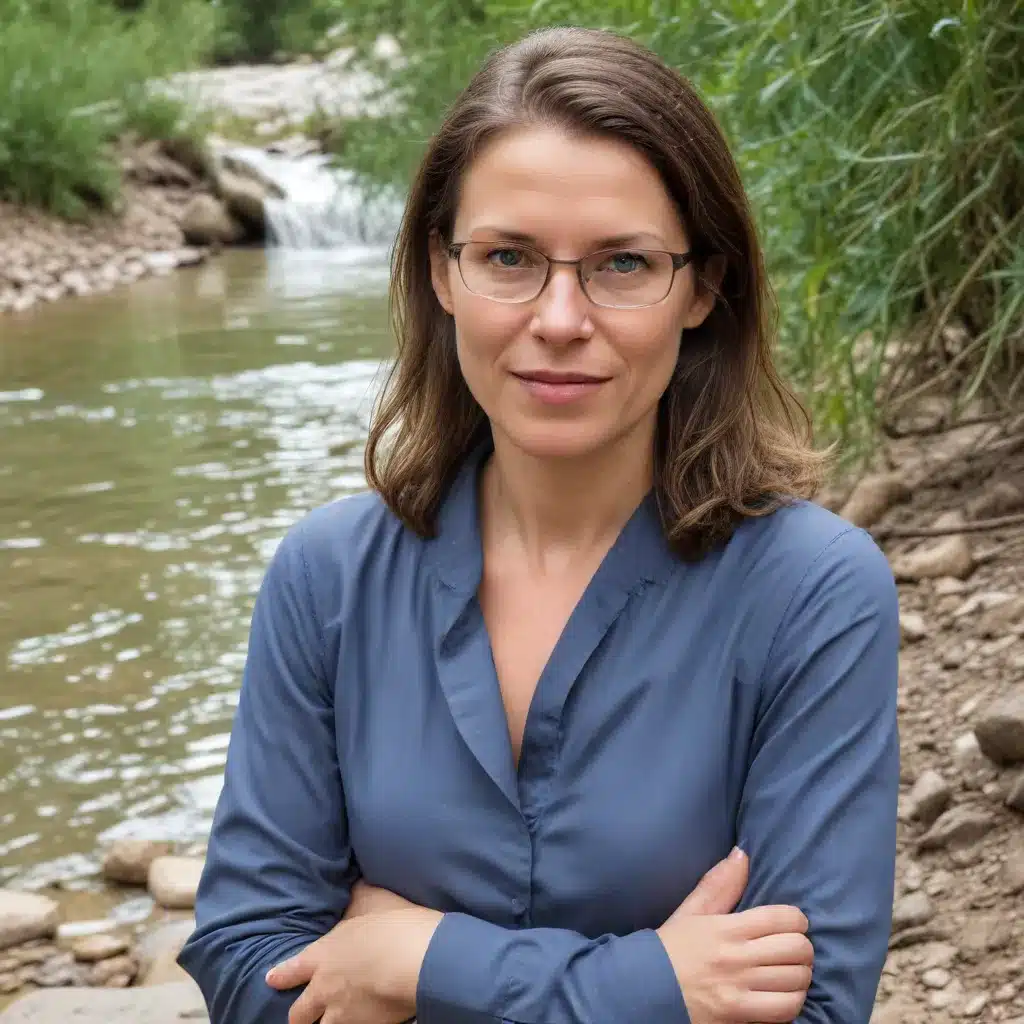
The Multifaceted Challenge of Clean Water Scarcity
Sufficient water of good quality is vital for humankind and nature. A growing global population increases the demand for water of suitable quality across various sectors, including domestic, industrial, and agricultural uses. Additionally, climate change and extreme weather events, such as droughts and heatwaves, directly affect the availability, quality, and use of this precious resource.
Prof. Dr. Michelle van Vliet, a leading expert in water quality and sustainable water systems at Utrecht University, is pioneering our understanding of the complex drivers of clean water scarcity under global change. Her innovative research and interdisciplinary approach are crucial in informing strategies to manage and mitigate this pressing issue.
Beyond Quantity: The Importance of Water Quality
Traditionally, studies have assessed water scarcity based solely on water quantity, but Prof. Van Vliet emphasizes that there is much more to this challenge. The usability of water for different purposes is also heavily dependent on its quality. It is not just about having sufficient water availability; it is about having the right quality of water as well.
“Decreasing water availability, worsening of water quality, and increasing water use from sectors all contribute to increasing water scarcity,” explains Prof. Van Vliet. “These three components individually contribute to water scarcity, but they also interact in complex ways that further exacerbate the issue.”
Extreme Weather Events and their Multifaceted Impacts
Droughts and heatwaves, which are becoming more frequent and severe due to climate change, amplify water scarcity across the globe. These extreme weather events not only directly impact water availability but also indirectly affect water quality and sectoral water use.
During droughts, for instance, decreasing water availability can result in the degradation of surface water quality due to the reduced capacity of rivers to dilute pollutants. This deterioration in water quality can then further exacerbate water scarcity, as water sources may no longer be suitable for certain uses, such as irrigation.
Moreover, extreme weather events can lead to increased water demands in specific sectors, such as households and agriculture, directly contributing to greater water scarcity from a quantity perspective. However, these heightened demands can also affect wastewater flows and water quality, as the domestic and agricultural sectors are major sources of various pollutants.
“Both global and regional studies have demonstrated that present and future water scarcity is strongly driven by water-quality issues, particularly in water scarcity hotspots in the Global South, such as in Southeast Asia and sub-Saharan Africa,” emphasizes Prof. Van Vliet.
Unraveling the Drivers of Clean Water Scarcity
To improve our understanding of clean water scarcity and its driving factors under extreme weather conditions, Prof. Van Vliet argues that we need to develop integrated water assessment frameworks. These frameworks would allow us to fully account for water availability, water quality, and water use across different sectors.
“Such tools would enable the implementation of effective water management strategies and mitigate against clean water scarcity,” explains Prof. Van Vliet.
Advancements in modeling and simulation technologies now enable researchers to simulate trends and spatial patterns of water resources in more detail, considering water quality impacts and how they interact with various water-using sectors, from local to global scales and across time.
Towards Sustainable Water Management Solutions
Traditionally, efforts to alleviate water scarcity have focused on increasing freshwater availability and enhancing water-use efficiency. However, Prof. Van Vliet believes that a stronger shift is needed towards considering water quality improvements, involving the reduction of pollutant emissions and the expansion of wastewater treatment and reuse amongst different sectors.
“Understanding how water quality, availability, and use by various sectors interact is crucial. By doing so, we can explore synergistic combinations of solutions for regions affected by clean water scarcity worldwide,” she emphasizes.
Further studies are needed to look more closely at the interactions of water use by various sectors with surface and groundwater availability and quality. As we navigate the challenges of a growing global population, changing climate, and more extreme weather events, Prof. Van Vliet’s work highlights the importance of understanding these intricate relationships to ensure the provision of clean water for present and future generations.
Empowering the Next Generation of Water Experts
In addition to her groundbreaking research, Prof. Van Vliet is dedicated to educating the next generation of water experts. She firmly believes that an interdisciplinary approach is essential in providing students with the necessary expertise and skills to tackle current and future water-related challenges.
“High-educated water scientists, consultants, and policymakers with water system and water quality knowledge are urgently needed to address the main challenges that we are facing,” she states.
Together with her colleagues, Prof. Van Vliet has developed two new water courses that aim to equip bachelor and master students with the knowledge, skills, and attitude required to develop sustainable water management solutions in our changing world.
Conclusion: A Call for Collaborative Action
As the global population continues to grow and climate change intensifies, the need for sustainable water management solutions has never been more pressing. Prof. Van Vliet’s pioneering work on the complex interplay of water quality, availability, and sectoral use provides critical insights that can inform strategies to address the invisible water crisis.
By fostering interdisciplinary collaboration, advancing modeling and simulation capabilities, and educating the next generation of water experts, Prof. Van Vliet and her team are paving the way for a more water-secure future. Their efforts serve as a call to action for all stakeholders – from policymakers and practitioners to researchers and community members – to work together in safeguarding this precious resource for generations to come.
To learn more about Prof. Van Vliet’s work and stay up-to-date on the latest developments in sustainable water management, visit the Joint Action for Water blog.

